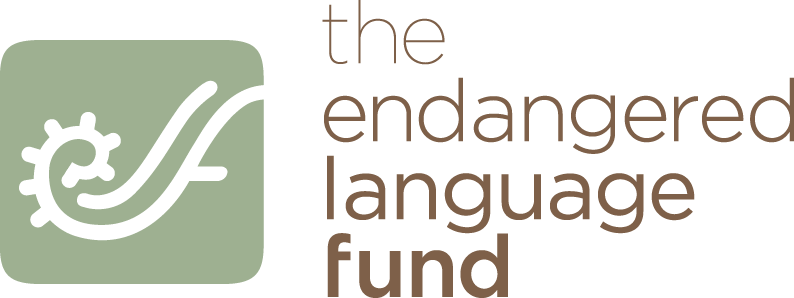Native Voices Endowment Recipients - 2015
Tamara DeCoteau - Sisseton-Wahpeton Oyate Dakotah Language Institute
Zitkanna Nunpa (Two Birds)
The younger generation has more difficulty learning the Dakotah language since there are few opportunities to hear or participate in conversations with native speakers. The Zitkanna Nunpa project has two goals. First, it aims to facilitate language learning by having elders come together in small groups to have natural conversations in Dakotah. Students of the language will come to these sessions to be able to see the language in use, and better understand the nuances of normal speech outside the classroom. Second, these conversations will be video and audio recorded, and archived, as material for new generations of speakers.
Petra Reyna One Hawk & Jaclynn Davis Wallette - The Native American 4H Club of Cass County
Dakota and Lakota Language Classes for the Native American 4H Club of Cass County and Community Members
This project will use its ELF funds to provide courses in Dakota and Lakota. The target audience will be children and teens in the Fargo- Moorhead area who belong to the Native American 4H Club of Cass County, as well as other students. Previous attempts to teach both languages have been successful but are difficult to maintain without funding, as many native speakers who are able to teach do not live close to those learning the language. Over a period of two years, the course will be promoted, planned out, implemented in weekly classes, and evaluated. The students who participate will receive a certificate to show that they have completed the program.
Lewis St. Cyr - HoChunk Renaissance Program
Documenting Winnebago HoChunk Language as a Language Learning Tool
The ultimate goal of this program is to increase the number of native speakers of HoChunk on the Winnebago reservation in Nebraska. The program will create audio and video recordings of native speaker elders conversing in the HoChunk language. They will make fifteen audio recordings and at least ten professionally filmed videos. These teaching materials will be used on the Winnebago Reservation and archived for future use. The material will be aimed at children and teens up to age 18, but adults learning the language will also have access to them.
Charlie Huffman - Kaw Language and Learning Center
Waleze Zhin ga Hin ga Material Support Project
This project will create two books in Kansa, also known as Kaw, with accompanying audio CDs. One book will be for young children with basic vocabulary such as parts of the body and colors. The other will be a narrative for children between the ages of four and eight years old, illustrated by an artist from the Kaw Nation. The center aims to give children of the Kaw Nation the opportunity to become bilingual before they are too old to learn Kansa as a first language. Not only will the creation of these two books give the children a chance to become literate in Kansa, but the audio component will allow adults to review and hear native speech for themselves in order to improve their own language abilities while teaching their children. Copies of the books will be printed on demand for tribal members who do not reside in Kay County where the project is being undertaken.
Audra Vincent - Coeur d’Alene Language Program
Coeur d’Alene Language Incentive Program
Hnqwa’qwe’eln, the Coeur d’Alene Language Program, has been in operation for about a year and a half. Students attend classes two hours a day, five days a week. With the help of ELF funding, the students will receive incentives which will not only motivate them to continue learning, but will give the language visibility in the community. They will receive promotional items such as gift cards, and water bottles and jackets with phrases in Coeur d’Alene after they have reached milestones in the course. Coeur d’Alene only has two remaining first-language native speakers, and this project aims to encourage students to become the next generation of speakers.
Lisa Casarez and Jayli Fimbres
Hidatsa Language Apprenticeship
This grant will fund a two-year Master-Apprentice program for Lisa Casarez and Jayli Fimbres to improve their skills in the Hidatsa language and obtain their teaching certificates. This will enable them to become teachers of the language for the Fort Berthold Reservation. The pair will work with fluent elders, recording their sessions together and building relationships with those who can assist in future revitalization efforts. During the summer, they will both attend the MHA Summer Institute, which is a two-week intensive program created to help teachers and students improve their language proficiency in Mandan, Hidatsa, and Arikara.
Jaeci Hall - University of Oregon, Northwest Indian Language Institute
CoLang Fellowship
This fellowship allowed Jaeci Hall to attend CoLang 2016 at the University of Alaska to improve her skills in language documentation and revitalization methodologies. This experience will help in her ongoing effort to revive her ancestral language, Tututni. Although the last first-language native speakers of Tututni have passed away, an active effort to revive the language is in progress. Along with four workshops on language documentation and archiving, she took a field methods class on Han, a language in the same family as Tututni.
Zitkanna Nunpa (Two Birds)
The younger generation has more difficulty learning the Dakotah language since there are few opportunities to hear or participate in conversations with native speakers. The Zitkanna Nunpa project has two goals. First, it aims to facilitate language learning by having elders come together in small groups to have natural conversations in Dakotah. Students of the language will come to these sessions to be able to see the language in use, and better understand the nuances of normal speech outside the classroom. Second, these conversations will be video and audio recorded, and archived, as material for new generations of speakers.
Petra Reyna One Hawk & Jaclynn Davis Wallette - The Native American 4H Club of Cass County
Dakota and Lakota Language Classes for the Native American 4H Club of Cass County and Community Members
This project will use its ELF funds to provide courses in Dakota and Lakota. The target audience will be children and teens in the Fargo- Moorhead area who belong to the Native American 4H Club of Cass County, as well as other students. Previous attempts to teach both languages have been successful but are difficult to maintain without funding, as many native speakers who are able to teach do not live close to those learning the language. Over a period of two years, the course will be promoted, planned out, implemented in weekly classes, and evaluated. The students who participate will receive a certificate to show that they have completed the program.
Lewis St. Cyr - HoChunk Renaissance Program
Documenting Winnebago HoChunk Language as a Language Learning Tool
The ultimate goal of this program is to increase the number of native speakers of HoChunk on the Winnebago reservation in Nebraska. The program will create audio and video recordings of native speaker elders conversing in the HoChunk language. They will make fifteen audio recordings and at least ten professionally filmed videos. These teaching materials will be used on the Winnebago Reservation and archived for future use. The material will be aimed at children and teens up to age 18, but adults learning the language will also have access to them.
Charlie Huffman - Kaw Language and Learning Center
Waleze Zhin ga Hin ga Material Support Project
This project will create two books in Kansa, also known as Kaw, with accompanying audio CDs. One book will be for young children with basic vocabulary such as parts of the body and colors. The other will be a narrative for children between the ages of four and eight years old, illustrated by an artist from the Kaw Nation. The center aims to give children of the Kaw Nation the opportunity to become bilingual before they are too old to learn Kansa as a first language. Not only will the creation of these two books give the children a chance to become literate in Kansa, but the audio component will allow adults to review and hear native speech for themselves in order to improve their own language abilities while teaching their children. Copies of the books will be printed on demand for tribal members who do not reside in Kay County where the project is being undertaken.
Audra Vincent - Coeur d’Alene Language Program
Coeur d’Alene Language Incentive Program
Hnqwa’qwe’eln, the Coeur d’Alene Language Program, has been in operation for about a year and a half. Students attend classes two hours a day, five days a week. With the help of ELF funding, the students will receive incentives which will not only motivate them to continue learning, but will give the language visibility in the community. They will receive promotional items such as gift cards, and water bottles and jackets with phrases in Coeur d’Alene after they have reached milestones in the course. Coeur d’Alene only has two remaining first-language native speakers, and this project aims to encourage students to become the next generation of speakers.
Lisa Casarez and Jayli Fimbres
Hidatsa Language Apprenticeship
This grant will fund a two-year Master-Apprentice program for Lisa Casarez and Jayli Fimbres to improve their skills in the Hidatsa language and obtain their teaching certificates. This will enable them to become teachers of the language for the Fort Berthold Reservation. The pair will work with fluent elders, recording their sessions together and building relationships with those who can assist in future revitalization efforts. During the summer, they will both attend the MHA Summer Institute, which is a two-week intensive program created to help teachers and students improve their language proficiency in Mandan, Hidatsa, and Arikara.
Jaeci Hall - University of Oregon, Northwest Indian Language Institute
CoLang Fellowship
This fellowship allowed Jaeci Hall to attend CoLang 2016 at the University of Alaska to improve her skills in language documentation and revitalization methodologies. This experience will help in her ongoing effort to revive her ancestral language, Tututni. Although the last first-language native speakers of Tututni have passed away, an active effort to revive the language is in progress. Along with four workshops on language documentation and archiving, she took a field methods class on Han, a language in the same family as Tututni.

